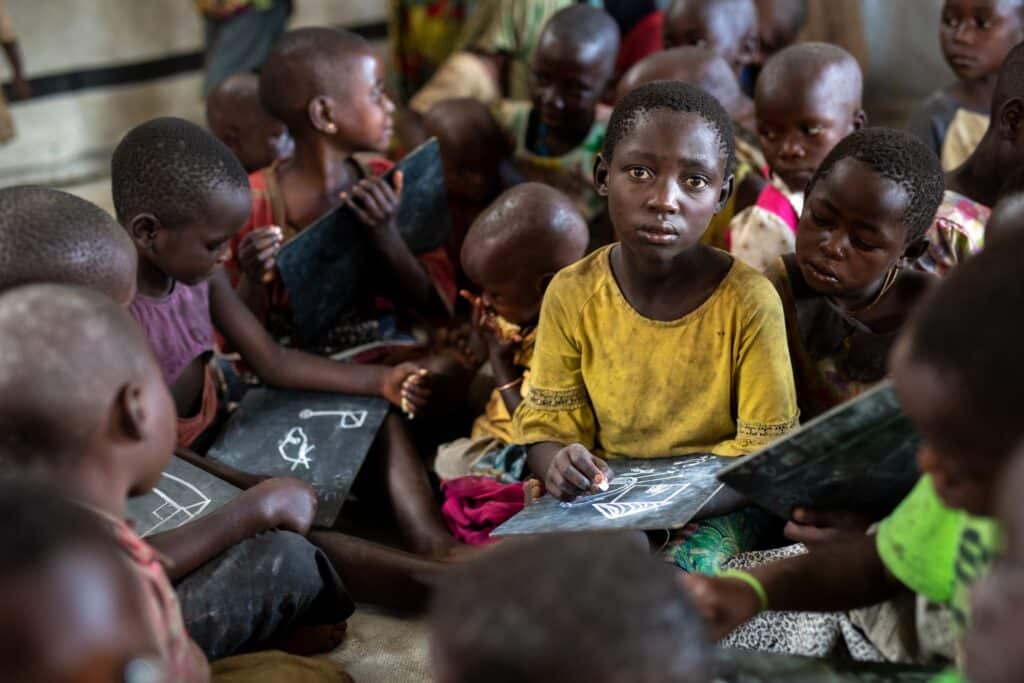As the world watches the conflict between Israel and Hamas unfold, the heart-wrenching images of children caught in the crossfire serve as a stark reminder of war’s devastating impact. Yet, this is not an isolated tragedy. Across the globe, in numerous conflict zones, children bear the brunt of war’s cruel consequences. In this post, we will explore the global impact of war on children and discuss potential solutions to help them navigate these challenging times.
War ravages the very fabric of a child’s life. It destroys homes, schools, and healthcare facilities, depriving children of their basic necessities. Poor living conditions and inadequate sanitation often lead to the spread of infectious diseases. This, coupled with the lack of medication, medical staff, and proper health care, results in a grim reality for children in war-torn regions.
The loss of essential resources further compounds the issue. Often seen as sanctuaries for learning and growth, schools are decimated, robbing children of their right to education. The destruction of healthcare facilities leaves children without access to essential medical services. Even the most basic human needs – adequate shelter, clean water, and food – become scarce commodities.
Children living in conflict-affected countries live under a constant veil of fear. The incessant threat of violence and the grave violations of their rights have serious impacts on their mental health. The trauma experienced in these formative years can result in lifelong psychological scars.
War also exacerbates hunger. As conflict disrupts food supply chains and agriculture, malnutrition becomes a grim reality for many children. The harshest effects of war often have little to do with the conflict itself but are instead linked to the subsequent breakdown of social and economic structures.
Armed conflict exposes children to unimaginable horrors. It destroys their homes and takes away their loved ones. Many are forced into combat, robbed of their innocence, and made to witness or participate in acts of violence.
The impact of war is not limited to children’s physical well-being and safety; it also severely affects their learning and development. The disruption of education hampers their cognitive growth from the earliest stages of life, limiting their potential and prospects for a better future.
Given this grim reality, what can we do to help these children? First, we need to recognize and address the unique needs and vulnerabilities of children in conflict zones. This means prioritizing their protection and ensuring access to essential services like healthcare, nutrition, and education.
Non-governmental organizations, governments, and international bodies must work together to provide these children with immediate aid and long-term support. This could include establishing safe spaces, providing psychosocial support, and implementing catch-up education programs.
We must also advocate for peace and push for diplomatic solutions to conflicts. As global citizens, we are collectively responsible for raising our voices against war and violence. Let us use our platforms, however big or small, to promote peace and champion the rights of children.
Investing in education is another crucial step. Education offers hope and a pathway out of poverty. It equips children with the knowledge and skills they need to rebuild their lives and communities. Through organizations like The Scribes Institute, we can provide quality education to children affected by conflict, helping them realize their potential and contribute to a more peaceful world.
Finally, we must remember that these children are not just victims of war; they are also agents of change. They can play a pivotal role in building peace and driving social and economic development in their communities with the proper support and opportunities.
The impact of war on children is a global issue that requires our urgent attention. While the task at hand is daunting, it is not insurmountable. Together, we can make a difference. By investing in children and youth, advocating for peace, and providing immediate and long-term support, we can help create a world where every child can grow up free from the horrors of war.
Dr. Aaron Lewis, October 16, 2023

